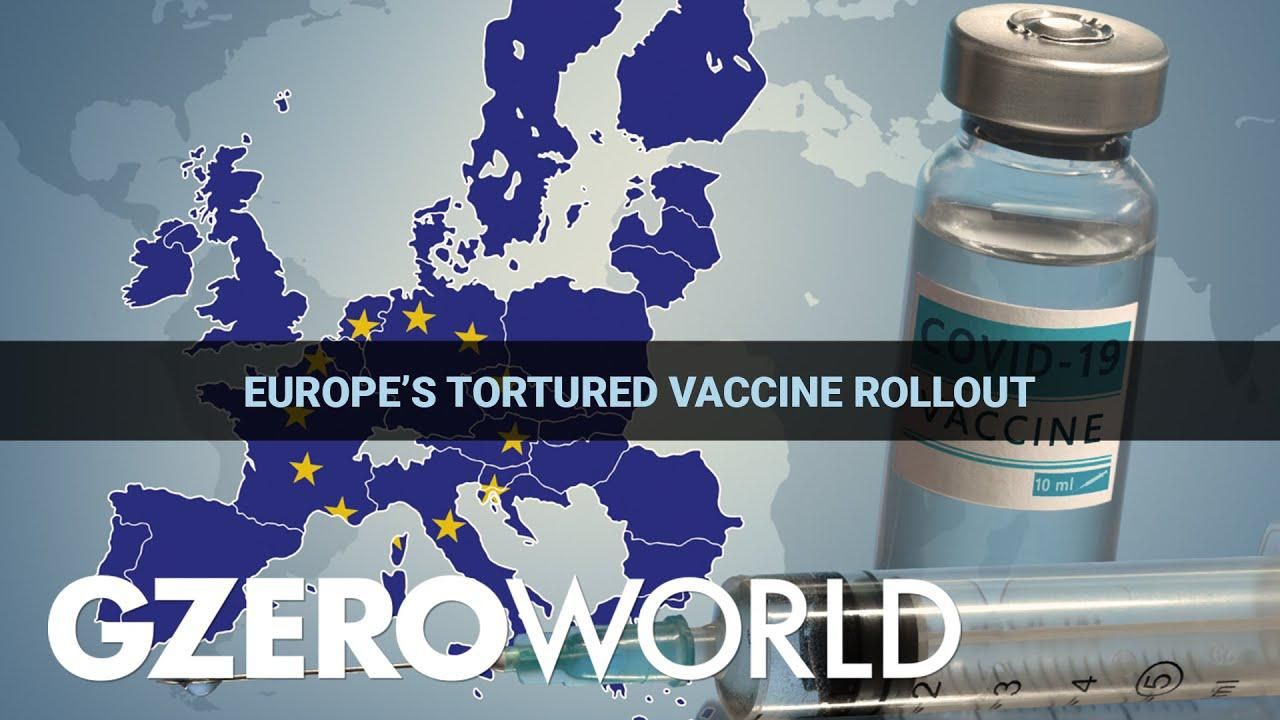
Why Europe’s Vaccine Rollout Was So Tortured | Former Italian PM Enrico Letta | GZERO World
The EU acted swiftly, decisively, and effectively to respond to the pandemic's economic fallout. A nearly trillion dollar bailout package, agreed to late last July, has kept much of the continent afloat. But it failed on the public health response, first on testing and then rolling out vaccines. Enrico Letta, Italy's former prime minister, shares his thoughts on the reasons why in a conversation with Ian Bremmer on the latest episode of GZERO World, airing on public television stations nationwide starting this Friday, March 26. Check local listings.
From Your Site Articles
- Christine Lagarde: The uncertain fate of Europe's economic ... ›
- A perfect AstraZeneca storm is brewing in Europe - GZERO Media ›
- Hope for Europe's vaccine rollout; CDU setback in German elections ›
- Was the EU's bungled vaccine rollout inevitable? - GZERO Media ›
- Podcast: Italy In Europe's spotlight: insights from former PM Enrico Letta - GZERO Media ›
- Enrico Letta on Italian politics: “Houston, we have a problem” - GZERO Media ›
- The dangers of an uneven COVID-19 vaccine rollout - GZERO Media ›
- Italy in Europe's spotlight: insights from former PM Enrico Letta - GZERO Media ›
- Who is Italy’s new prime minister, Mario Draghi? - GZERO Media ›
- Why Italy's third COVID lockdown is different - GZERO Media ›